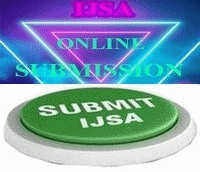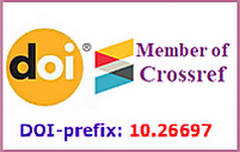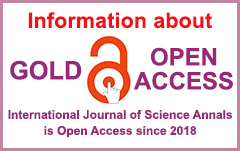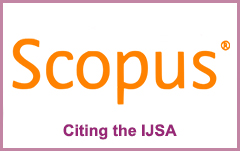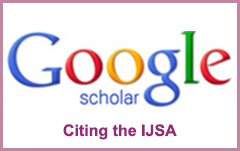REVIEWERS
DOI: https://doi.org/10.26697/ijsa.2.2
Base URL: https://ijsa.culturehealth.org/index.php/en/editorial-board/reviewers
Base URL: https://ijsa.culturehealth.org/index.php/en/editorial-board/reviewers
The confidence that academics and the public have in the research published in the IJSA relies on the diligence of our peer review process as well as the Editorial Office commitment to publishing excellence.
We are extremely grateful to our peer reviewers for their expertise, time, and willingness to provide essential feedback.
All Reviewers get a Certificate.
We are always looking for new reviewers across a range of topics.
What you need to know
Thank you for expressing an interest in being a reviewer for IJSA. Reviewers are essential to the scholarly publishing process. As a specialist in Social and Behavioral Sciences, or Health Care Science, you are well placed to assess the soundness of another author’s work and contribute further insights.
Reviewing for IJSA also has huge benefits for you as a reviewer:
- You will be supporting the body of knowledge and therefore increasing your reputation as a participatory academic;
- You are establishing yourself as an expert in a given field of research;
- You will interact with the cutting-edge research in your area, before it is published;
- Exercise your critical thinking skills;
- You can return the favour to those who have reviewed your submissions;
- You can build a relationship with reputable journals and their editorial teams can increase your opportunity of being invited to join an IJSA Editorial Board.
Do you have the time?
Reviewing an article can be time consuming. Reviews are most beneficial to authors when they are thorough and specific.
As such, it is better not to review if you don’t have the time, than to take on a review and not be able to give it your full attention.
Be sure to assess your other commitments before replying to an Editor’s invitation to review. You can always recommend a colleague who has more free time and make it clear that you would like to review in the future.
Are you a suitable reviewer?
The Editor who has approached you may not be familiar with the details of your work, but rather may only be aware of your work in a broader context. Only accept an invitation if you are competent to review the article.
Avoid potential conflicts of interest?
A conflict of interest will not necessarily eliminate you from reviewing an article, but full disclosure to the Editor will allow them to make an informed decision.
Examples of conflicts that should be stated when responding to an invitation to review:
- If you work in the same department or institute as one of the authors;
- If you have worked on a paper previously with an author;
- If you have a professional or financial connection to the article.
What to consider when reviewing
There are a number of points so it is important to consider every article you review.
- Ethics
Plagiarism
If you have reason to believe that an article is a substantial copy of another work please let the Editor know, citing the previous work in as much detail as possible.
Defamation/libel
If inaccurate, unsubstantiated or emotive statements are made about organisations or people in a submitted article, please contact the Editor. If it is considered that the article could be potentially libellous, clarification will be sought from the author.
Fraud
Although it can be very difficult to detect if you suspect the results in an article to be falsified please raise the matter with the Editor.
Risk
If the reviewer perceives there is a risk to IJSA, please contact the Editor about the perceived risk.
- Confidentiality
Any manuscripts received for review must be treated as confidential documents. They must not be shared or discussed with others unless otherwise authorized by the Editor. Unpublished information or material disclosed in a submitted manuscript must not be used in a reviewer’s own research without the express written consent of the author. Privileged information or ideas obtained through peer review must be kept confidential and not used for personal gain.
Consultation with a single colleague may sometimes be appropriate but you should always discuss this with the Editor beforehand. Most Editors welcome additional comments but whoever else is involved is also obliged to keep the review process confidential.
- Structure and content
See the examples below and note how the reviewers have focused their feedback under key headings, i.e. Title, Abstract, Introduction, Material and Methods, Results, Discussion, and Conclusions. Further, the tone and suggestions made by the reviewers are constructive and provide scope to improve the quality of the submission.
IJSA use double-blind reviewing (double-blind review – neither the Author nor the Reviewer know each other). We promise to conceal always the identity of both the Reviewers and the Author from both the parties.
Reviewing the manuscript, the Reviewers recommend:
(1) Accept without revision;
(2) Accept after revision;
(3) Reject.
All manuscripts that have been submitted to the Editorial Board go through a peer review procedure. The Reviewers fill out the Reviewer Evaluation Form, which they submit to the IJSA Editorial Review Board.
Reviewers have the opportunity for validation of their reviews in Clarivate (Web of Science).
Email: This email address is being protected from spambots. You need JavaScript enabled to view it.



